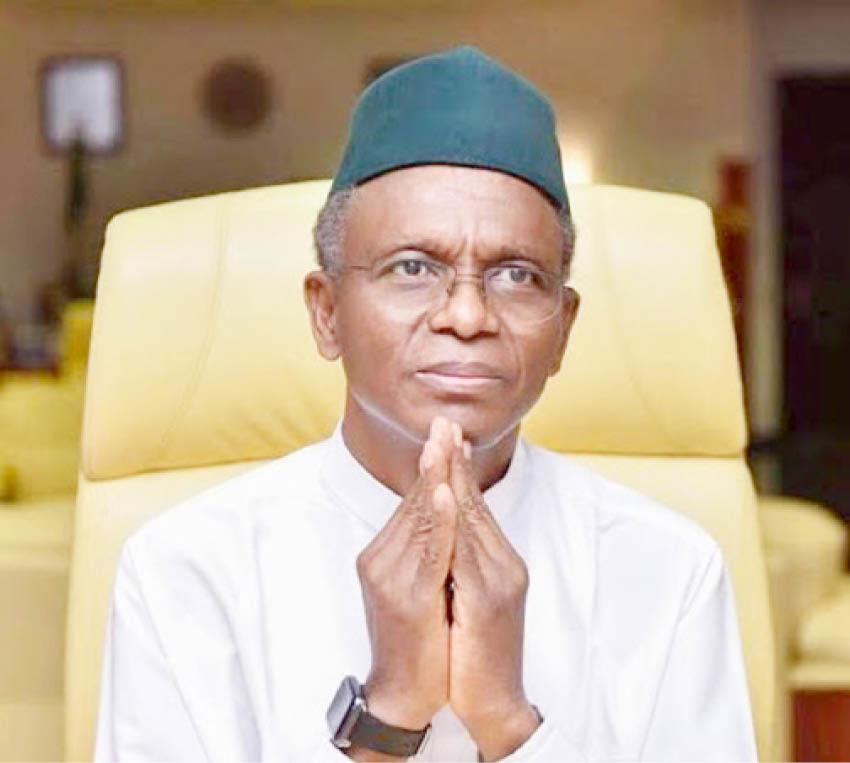The decision by Governor Nasir El-Rufai of Kaduna State to disengage 4,000 local government employees has no doubt sparked massive outrage. In times when the unemployment rate in the country has reached 33.3 per cent, the governor’s action seems to rub salt to injury. This will add to the country’s record of being the country with the highest number of people living in extreme poverty.
The seemingly logical thing for Governor El-Rufai to do is to consider employing more people. Surely, sacking them should be his last resort or should it? Putting the justifications he provided aside, I would like to walk us through times when Governor El-Rufai made tough, brutal, brave and suicidal (if you like) decisions while in public service.
- We are not harbouring criminals, Northern community in Abia
- Minister Pantami’s case and the ‘War on Terror Witchhunt’ in Nigeria
Since joining politics as General Abdulsalami Abubakar’s economic adviser in 1998, also heading the Bureau of Public Enterprises in 1999, and being the Secretary of the National Council on Privatisation, El-Rufai has maintained consistency in his stance for providing unorthodox solutions to Nigeria’s equally unorthodox problems. This reputation only raised his esteem with the then President, Chief Obasanjo. Not only was he named the minister of the Federal Capital Territory, he was a critical member of the 5-man economic team between 2003 and 2007, and also the coordinating minister of commerce and interior at alternating instances.
As a minister in the FCT, between 2003 and 2007, El-Rufai demolished thousands of houses, evicting close to 800,000 people from their homes. This was in a bid to restore the nation’s capital’s ‘master plan’ and bring sanity to the ‘chaos’ that was the capital at the time. Among the houses was that of Senator Ahmadu Ali, the chairman of the then ruling party, the PDP. He brushed aside adversity, court suits, blackmails and threats to his life as if they were nothing. One would think he was doing all these because he was an appointee and not democratically elected. They (we) were wrong!
As an elected governor of Kaduna State from 2015 to date, he has also demolished thousands of houses. Perhaps, the most audacious of decisions was when he disengaged over 21,000 school teachers after they failed a competency test by his government.
Back to the sacking of 4000 local government staff in Kaduna. You would agree with me that it is not the most controversial among his decisions. Sacking of 4,000 out of over 100,000 staff, in a state of over nine million inhabitants is truly not as bad as it sounds; hear me out. Agreed, a single person losing his job has several negative micro implications. The loss of a means of livelihood to support oneself and dependents is unbearable. Also agreed. But have we stopped to consider the resources available to the government vis-à-vis the list of needs on a yearly basis? Compare the ever-expanding capital needs and a shrinking capital budget on one hand, and then the constantly swelling recurrent budget that has no long-run benefit for those consuming it, and also the state at large. You will agree that something needs to be done to save future generations.
Moreover, nine million people in Kaduna will benefit more from the capital projects that should spring up from the funds freed, as a result of the 4,000 jobs lost, than what the 4,000 people are, sadly, going to go through being out of their jobs. It is a bitter pill that must be taken. Mallam El-Rufai is one man who loves to take this kind of pill! Truth be told, we might need 35 more people with ‘coconut’ heads sooner rather than later.
Aliyu Sulaiman sent this piece from Sokoto

 Join Daily Trust WhatsApp Community For Quick Access To News and Happenings Around You.
Join Daily Trust WhatsApp Community For Quick Access To News and Happenings Around You.

